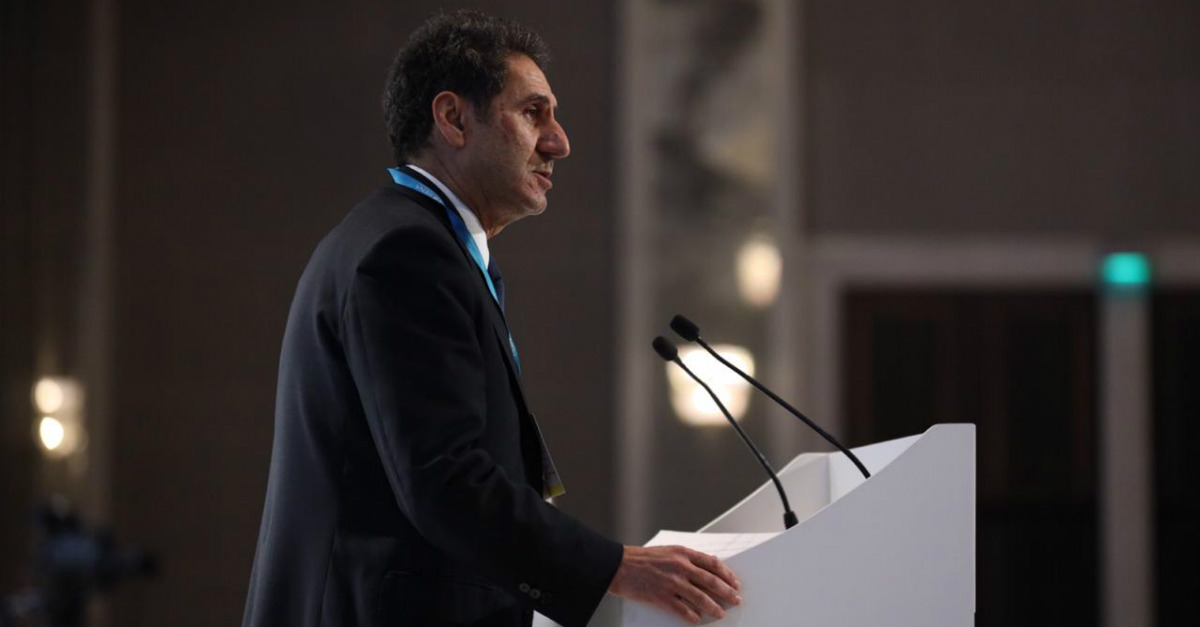Francesco La Camera was selected as the director-general of the International Renewable Energy Agency (IRENA) for a second four-year term. IRENA said that it will adopt a new strategy centered on urgent and targeted action.
IRENA generally works to accelerate the deployment and integration of renewable energy technologies globally. It does this by providing analysis and policy advice, fostering international cooperation, and promoting the development of renewable energy projects and investments.
IRENA also supports countries in their transition to sustainable energy systems, including capacity building and sharing knowledge and best practices.
In general, IRENA focuses on using renewable energy to mitigate climate change, improve energy security, and promote sustainable economic development.
La Camera, the top intergovernmental organization for renewables, has been in charge of Irena since 2019, and she will continue to do so through 2027 as it expands its mandate to support the mainstreaming of green energy sources around the world.
IRENA takes a new course
The organization outlined a new course in its most recent assembly in accordance with its most recent five-year strategy, which is based on immediate and focused action, unmatched international cooperation, ongoing innovation, and a focus on topics like a “just transition” and energy security.
La Camera stated that the tools and techniques of the future, not the outdated ones, will find use in creating a new energy system. We must innovate to rethink international collaboration for the new energy period, just as we innovate to better technologies.
Renewable energy can lead to multiple benefits
A shift based on renewable energy can lead to climate-proof energy infrastructure, enhanced energy security, decreased inequality, and long-overdue universal access.
According to the new objective announced at the Abu Dhabi assembly, Irena’s next stage will be to unify all aspects of renewables-based transitions and take into account their structural effects, effects on human wellbeing, and ability to close the development gap.
It will also focus a larger emphasis on nexus concerns, such as food security, water, health, gender, and education, among other cross-sectoral issues, where renewable energy can have a significant positive impact.
IRENA: Cross-sectoral issues with renewables matter
There is a connection between renewables and cross-sectoral issues. Especially when it comes to gender issues. It is because the deployment and integration of renewable energy can have different impacts on men and women. Some of the ways in which renewable energy and gender intersect include:
- Employment: The renewable energy sector can provide employment opportunities for both men and women. But there are fewer women in the industry. In addition, women may have less access to training and education in the field, which can limit their ability to secure well-paying jobs in the sector.
- Access to energy: Renewable energy can help increase women’s access to energy, particularly in rural and remote areas where women often bear the primary responsibility for household energy needs. This can improve their quality of life and provide opportunities for income generation.
- Community engagement: Renewable energy projects often involve engagement with local communities, and women may be less likely to participate in these consultations. This can limit their ability to influence the design and implementation of projects. Also, it may mean that their specific needs and concerns are not taken into account.
- Ownership: Women are often underrepresented as owners of renewable energy projects. They may have less access to financing and other resources needed in the development and operation of these projects.
- Health: Air pollution caused by fossil fuels, has a more severe impact on women’s health than men, this is because women tend to spend more time indoors, and are more likely to suffer from respiratory diseases caused by indoor air pollution. Renewable energy can help to improve air quality and reduce these health impacts.
Therefore, it is important to consider gender issues when planning, implementing, and evaluating renewable energy projects, in order to ensure that they benefit both men and women equally.

